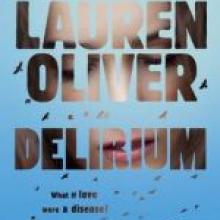Cushla Mckinney reviews some fantasy favourites.

Until the publication of Jasper Fforde's "Thursday Next" series, very few people knew that the characters inhabiting the stories we read have an independent existence. In the literary detective's latest adventure, One of our Thursdays is Missing, her intervention is critical if a cross-genre war between Racy Novel and Women's Fiction is to be averted.
ONE OF OUR THURSDAYS IS MISSING
Jasper Fforde
Hodder & Stoughton
The only problem is, the real Thursday Next is missing and the written Thursday (who acts out the role for readers of the previous novels) must either find her or take her place at the peace talks. To top it off, her fellow characters have voted her out of the series, and her prospective boyfriend has acquired a nasty back-story involving a bus full of nuns and orphaned puppies.
Cast in an attempt to make the books more family friendly - her predecessor having introduced too much sex and violence for the real Thursday's taste - written Thursday is not exactly an action heroine. Can she find the real Thursday in time? Will she get her old job back? Is she ever going to find true love?
These and other questions will only be resolved if the book is read, but unfortunately I'm not sure how much audience it will attract. It will make little sense for readers who have not read the previous novels, but it is likely to disappoint fans of the series. As clever as the original idea was, the literary in-jokes and punning are tired and well worn by this stage, and I didn't really care about the final outcome one way or the other. I will keep the book in my library to complete the set, but I think Thursday Next's time is past.

ARCHANGEL'S CONSORT
Nalini Singh
Hatchette
Archangel's Consort opens with Elena, a formerly human vampire hunter, starting a new life as an angel after being transformed at the end of the last book by her lover Raphael (the Archangel of New York). Although she revels in her new-found immortality, as an angel made rather than born, she is regarded with suspicion and contempt by many of Raphael's people. To make matters worse, an archangel of great power and malevolent madness, Raphael's mother Calaine, is awakening from centuries of slumber, triggering storms, earthquakes, and outbreaks of bloodlust and rage in vampire and angel alike. And the focus of her attention is the rival for her son's affection, Elena.
Although the premise is an interesting one, the novel itself is basically Mills and Boon with vampires. Packed full of hot, angelic sex interspersed with bloody violence, it drips with lush, lurid, cliche-ridden prose. Although this is the third in the series, I caught up on the back-story so easily from Elena's flashbacks that they must surely be clunky to anybody who has read the other books.
I gave up halfway through, after what plot there is was interrupted yet again by the heat of Elena and Raphael's passion.
There will be readers out there who love this book, but I am not one of them.

DELIRIUM
Lauren Oliver
Hodder & Stoughton
This is what Lauren Oliver invites us to consider in Delirium. Her protagonist, Lena Haloway, is eagerly counting down the days until her 18th birthday and the operation that will protect her from amor deliria nervosa; the disease formerly known as love that maddened humanity for thousands of years before scientists developed a cure.
Occasionally the treatment fails (Lena lost her own mother to the deadly illness), and pockets of infection still exist in the Wilds outside the protective barriers surrounding the towns and cities. Because of this and the fact that treatment is ineffective for those under 18, communities are vigilant in protecting their children and Lena looks forward both to life without pain or grief, and freedom from curfews, supervision and fear.
Then she meets Alex and discovers the authorities who protect her are far from benign, and the walls that keep her safe are also a prison.
Like many good young adult novels, Delirium is just as accessible to the not-so-young, and in its depiction of a society living in elective passivity evokes echoes of a number of my favourite dystopian novels; 1984, A Handmaid's Tale, Never Let Me Go.
Reviving my own memories of adolescent love, the story also carried the bittersweet knowledge that I will never feel that intermingling of joy and pain as intensely again. You cannot have one without the other and I would forgo neither. Love and loss are part of what make us human.
This is Lena's discovery and Oliver's eloquently argued point.
- Dr McKinney is a Dunedin scientist.













